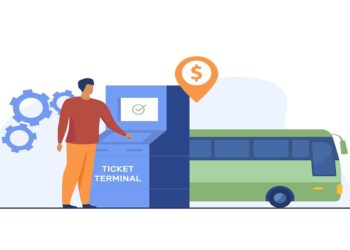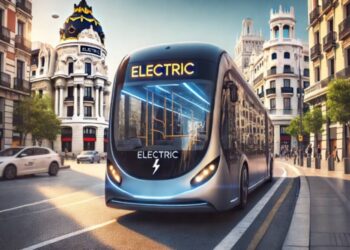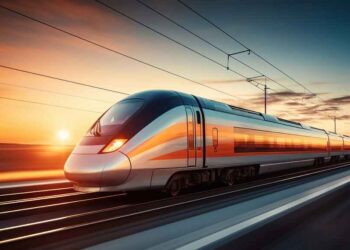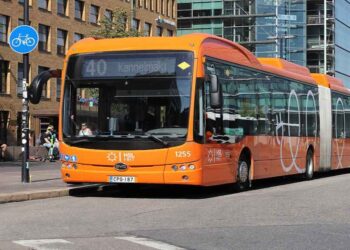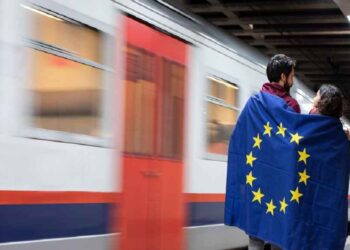Alstom and Deutsche Bahn (DB) in cooperation with Baden-Württemberg and Bavaria will open a new chapter in climate-friendly rail operations on Monday when they put Alstom’s first fully approved battery train to the test with passengers onboard. Starting on 24 January, the Battery Electric Multiple Unit (BEMU) will begin revenue service with passengers in Baden-Württemberg and in Bavaria from 5 February. DB will operate the low-emission vehicle with its regional transport subsidiary DB Regio. The test operation will run until the beginning of May 2022.
“Alternative drives are the future of mobility and our comprehensive solutions will enable more sustainable rail transport across Germany,” explains Müslüm Yakisan, President of the DACH Region at Alstom. “Since 2016, we have been working together to develop efficient and cost-effective battery technology to bridge non-electrified gaps on the German rail network. The passenger operation testing will enable us to gather valuable data and demonstrate the viability of our solution.”
“Deutsche Bahn wants to be climate-neutral by 2040 and this first battery train in passenger service represents the next big step towards emission-free trains in Germany’s regional transport,” says DB Regio CEO Dr. Jörg Sandvoss. “With this test, DB Regio wants to gain practical experience in order to master these future technologies in operation and maintenance. The trial operation provides new technical and operational knowledge in handling this innovative climate-friendly drive technology.”
Since 2016, Alstom has been developing the battery-electric train together with the Technical University of Berlin and with support from the National Organisation for Hydrogen and Fuel Cell Technology (NOW) and funding from the Federal Ministry for Digital and Transport. The project is intended to be a sustainable solution for Germany’s rail network where a total of 450 lines are operated exclusively with diesel trains. Alternative drives enable efficient and emission-free operation and this nearly four-month test on passenger routes in Bavaria and Baden-Württemberg is the next step towards decarbonating German rail transport. In the future, this BEMU technology will be applied to the Alstom Coradia platform.
“We need this future technology on the railways,” says Baden-Württemberg’s Minister of Transport, Winfried Hermann. “Alternative propulsion technologies in rail transport are important for the transition towards climate-friendly mobility. On lines where the construction of an overhead line is difficult and therefore too expensive, or can only be realized in the future, battery or hydrogen trains will gradually be used and replace the current diesel operation.”
“I am delighted that the new era of battery overhead line hybrid technology in Germany is also dawning in Bavaria and that the Free State is helping to push this important initiative forward. Since 2018, we have been targeting such a pilot operation on the Franconian Lake District Railway in the centre of the Free State with the ‘Bavarian Electric Mobility Strategy Rail’. I hope that this project will provide important insight, because the Bavarian railway network is virtually predestined for the use of such battery trains and we want to gradually replace our diesel trains with emission-free drives and become climate-neutral in Bavaria by 2040 at the latest,” Bavaria’s transport minister Kerstin Schreyer explains.
On weekdays the battery-powered train will run in Baden-Württemberg on the Stuttgart – Horb line and on Saturdays and Sundays, on the Pleinfeld – Gunzenhausen line in the Franconian Lake District. This arrangement will maximise the train’s mileage while testing a variety of route profiles and battery charging scenarios. While in Baden-Württemberg charging takes place during the ongoing journey, in Bavaria charging can only take place at the electrified destination and departure stations, as the route in between is not electrified. DB Regio will operate the train in Baden-Württemberg and Bavaria. Associated project partners are Nahverkehrsgesellschaft Baden-Württemberg (NVBW) and the Bayerische Eisenbahngesellschaft (BEG).
While Alstom’s hydrogen trains are optimised for longer routes, Alstom’s BEMUs are suitable for shorter routes or lines with non-electrified sections previously operated with diesel vehicles. Direct connections between electrified and non-electrified network sections are now possible and can be operated emission free, without the need of additional electrification – shortening the travel time between city and country.





















